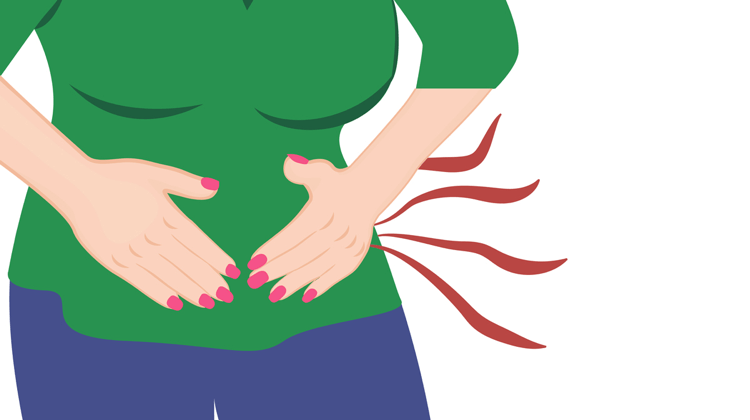Chronic Illness And Dating (What You Need To Know)

Let’s face it, dating is hard and even more so when you’re dealing with a chronic illness. But things can work out so long as you don’t go into it blind!
In this blog post, I uncover what you need to know about chronic illness and dating so you’re well-equipped to navigate the turf. And yes, a part of this includes telling your date about your health condition. 😉
So, let’s start at the beginning and that means asking yourself whether you’re ready to get out there…
ARE YOU IN A POSITION TO DATE?
Before even thinking about dating, you should find yourself agreeing with the following four statements:
- Your symptoms are manageable and you’re neither bedbound nor homebound.It sounds obvious but it’s still worth mentioning. Unfortunately, this alone takes me out of the game since my symptoms usually keep me at home, sometimes out of commission entirely.
- You’ve learned to come to terms with your chronic illness.If you’ve only recently been diagnosed and haven’t yet worked through the five stages of grief, you’re not in a position to start dating. [source] You’re only ready once you’ve learned to accept your illness and begun to feel at ease with yourself.
- You know you deserve to find love just like everybody else.If you’re constantly down on yourself and steeped in negative thinking, you’re not ready to date. Two books I highly recommend to combat these soul-crushing insecurities are You Can Heal Your Life by Louise Hay and What To Say When You Talk To Yourself by Shad Helmstetter.
- You have a life outside your chronic illness.If your chronic illness defines you instead of just representing one part of you, don’t think about dating. Even if you can no longer hold a regular job, you must have something going on in your life to attract a potential partner. So, for instance, pick a fun hobby or start a work-from-home business!
WHAT TO LOOK FOR IN A PARTNER
Okay, you’re ready to jump into the crazy world of dating, so now what? Well, before filling up your calendar with potential male or female suitors, you should have a clear idea of the type of qualities to look for in a mate. Surely, you want a partner, NOT a caregiver, right? So, here goes…
Your date should be:
- Accepting – He/she understands your limitations and doesn’t try to convince you otherwise.
- Adaptable – He/she tries to find activities both of you can enjoy and doesn’t get upset when you’re forced to cancel at the last minute.
- Dependable – He/she is there for you when your illness becomes too much to handle on your own.
- Humorous – He/she tries to make you laugh during tough times (and good times!)
- Respectful – He/she treats you well and admires your courage without “babying” you.
- Supportive – He/she asks questions about your illness and strives to learn more about it.
- Responsible – He/she is careful with money especially when factoring in costs to treat your illness.
WHERE CAN YOU LOOK FOR DATES?
One of the best ways to find dates is while participating in group activities you normally enjoy like wine tasting, volunteering or hiking. Check out Meetup.com to find events near you.
Another idea is to get involved with support groups, fundraisers and activist movements related to your chronic illness.
Of course, attending a place of worship is a good option too.
And then we come to the world of online dating. There are now dozens of prominent dating websites that cater to people with various disabilities and chronic illnesses such as:
- No Longer Lonely (mental illness)
- Prescription4Love (many health conditions)
- Special Bridge (mental and physical disabilities)
When everyone suffers from the same health condition as you, dating becomes less awkward and stressful since everything’s already out in the open!
You can also look at popular dating websites like Match and OkCupid but they come with an asterisk. On one hand, you have access to a much bigger database of potential dates than a chronic illness-specific website. On the other hand, you’re competing against lots of people who aren’t afflicted with a chronic health condition. Still, it’s definitely worth a try.
WHEN SHOULD YOU REVEAL YOUR CHRONIC ILLNESS?
Your date needs to know about your big secret at some point, right? So, when do you drop the bomb? Well, everyone seems to have a different opinion and it goes something like this…
GOOD IDEA | BAD IDEA |
|
|---|---|---|
| TELL AFTER 1ST DATE | "It's not fair to keep my illness from him. I should say something." | "He should get to know me more. What's the rush anyway?" |
| TELL AFTER 3RD DATE | "Okay, we've gone out a couple times and I like him. It's time to spill the beans." | "Why spoil a good thing? If things get serious, THEN I'll tell him." |
| COMMITTED RELATIONSHIP | "I have to tell him now otherwise, he'll never trust me!" | "Why does he have to know now? It's not like we're living together or anything." |
So, what’s the right answer? Well, there isn’t one. It depends entirely on the date and how you feel at the time.
Don’t feel obligated to share such a sensitive and personal part of your life if you’re not ready yet. Let your illness come up naturally (well, as natural as a discussion about a chronic illness can be anyway) and when you feel comfortable.
But there’s one exception and that’s if personal information about you living with a chronic illness is already out on the internet. In this case, you may want to tell your date sooner than later because there’s a good chance he/she Googled your name and found out about you.
HOW SHOULD YOU REVEAL YOUR CHRONIC ILLNESS?
Unfortunately, there’s no easy way to tell your date about your chronic illness. I mean, how do you mention your daily routine of popping more pills than a small tub of popcorn (minus the fake butter) and spending nights curled up in an ice-cold bathtub administering “reverse lattes” (street slang for coffee enemas) like it’s as ordinary as walking your dog? Answer: you can’t. So, you might as well go with the “there’s something I need to tell you” line.
Now, you probably already have practice telling others about your chronic illness so it should come easily to you. But in case you need some guidance, here are some topics to cover…
- What is it?
- Who gets it? Is it contagious?
- How common is it?
- What are your symptoms?
- What medications are you taking?
- How helpful is your medication?
- Do you need special assistance?
- What are your chances of improving/worsening?
- Is there a cure on the horizon?
- How do you cope with it?
Just don’t go overboard with details or throw in terminology only you and your doctor would understand. Keep it simple, straight-forward and non-emotional.
Let your date steer the direction of the conversation once you tell your story. If he/she asks questions, make him/her feel at ease with your answers. Even if your health condition is serious, take a light-hearted approach to give the impression that you don’t walk around with a huge chip on your shoulder. And you never know, your candidness could prompt your date to reveal something personal too which can help you feel more comfortable.
But don’t be disappointed if your date clams up. Give him/her the time and space to process what you’ve said for a few days. Just make sure to say how much you’d like to see him/her again before your date ends (assuming you do, of course!)
If it doesn’t work out, don’t worry about it because obviously the two of you weren’t meant to be together. Be patient, live your life and with perseverance Mr./Miss Wonderful will show up.
MORE TIPS FOR DATING
Walking around with a pebble in your shoe probably sounds more appealing than having to explain a chronic illness to your date but it’s something you have to do, right? Once you get it over with, you’ll have an easier time following these tips…
Make a Good Impression
- Don’t be desperate – Perhaps you’ve been out of the dating game for awhile and that’s fine! Just don’t appear too desperate otherwise, you’ll run the risk of scaring your date away.
- Dress to impress – I probably shouldn’t have to say this but keep the baggy sweatpants in the dresser at home. Wear something nice!
- Let the focus be on your date – You’re unloading some pretty heavy stuff about yourself and you need to counter it by highlighting your assets. One of the best ways to leave a lasting impression is to show (NOT tell) what you can offer him/her. Are you a problem solver? Can you be his/her personal cheerleader? Emotional crutch?
Don’t Push Yourself
Of course, you want to be the fun-loving date but don’t engage in activities guaranteed to flare-up symptoms. If the thought of hand gliding, swing dancing or apple picking make you want to curl up in a ball, don’t do them! Many chronically ill people have a limited number of spoons to last the day, so make sure to make good use of them. [source]
Cancel, If You Must
Obviously, canceling a date isn’t ideal but sometimes it’s your only option especially when symptoms take a turn for the worse (which can happen at any moment, right?) Just make sure to express your sincerest apologies and mention how much you’d like to reschedule the date. This way, he/she clearly knows how interested you are.
If your date doesn’t accommodate you or makes endless excuses, move on. But don’t harbor ill feelings because you don’t the reasons behind why he/she balked. Keep in mind, rejection is a natural (and unfortunately crappy) part of dating with or without a chronic illness!
Dating isn’t easy but I’m sure you already know that. But if you’re strong enough to cope with your illness, you certainly can handle whatever challenges dating throws at you.
NOW IT’S YOUR TURN!
Have you started dating while having a chronic illness? What’s your experience been like? Leave your comments below!








